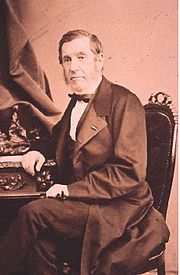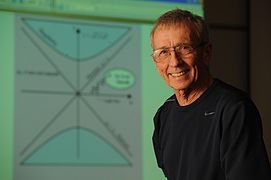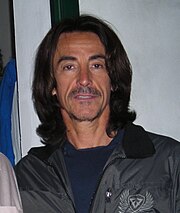Design
Design
Personality
Chart Properties
Your Cross represents the specific theme of your life. This cross embodies your unique potential & the lessons you're here to learn, providing a roadmap to fulfilling your life purpose.
We use the UTC birth time and date to do the calculations required to generate your Human Design chart.
Buy Tokens
Pay as you use, no expiry and no subscription required.Prompt Ideas
Get inspired with some epic prompt ideas.Wesley Clark's Biography
American politician and retired military man, Clark declared his candidacy for the Democratic nomination for U.S. President on September 17, 2003 in Little Rock Arkansas. Months before, a “draft Clark” movement had surged, and, after much media speculation, Clark entered the race, reportedly with the support and advice of Bill and Hillary Clinton. His detractors quickly pointed up his waffling on key issues, like his position on the Iraq War, and attacks on his personality and leadership style diminished his initial strong showing in the polls. General Clark withdrew from the Presidential race after losses in the Virginia and Tennessee primaries held on February 10, 2004 and soon after threw his support behind his rival, Senator John Kerry.
Although Clark spent most of his career in the U.S. Army, he is no stranger to Washington politics, having served as Supreme Allied Commander for Europe from 1997 until May, 2000. He led the charge in 1999 to turn Kosovo away from Slobodan Milosevic’s Serbia, heading up an unwieldy NATO alliance and an ambivalent American military establishment. Clark is often credited with winning NATO’s only war. He is as often criticized for his mistakes and misjudgments frequently stemming from his unyielding sense of “rightness” and a disregard for others’ conflicting opinions. He may be respected for his brilliance and analytical thinking, but is not always liked. Pentagon brass as well as subordinates and peers have called him brash, cocky, self-absorbed, hard on subordinates all the while praising the drive, intelligence and talent that fueled his success. Clark was forced to leave his term four months early most likely because of his frequent clashes with the Pentagon over resources, tactics and his job description. At least two top generals, Tommy Franks and Hugh Shelton, Clark’s boss in 1999, are openly critical of him. Shelton said, without giving specifics, “I will tell you the reason he came out of Europe early had to do with integrity and character issues, things that are very near and dear to my heart…Wes won’t get my vote.” One of his defenders, Richard Holbrooke, Clinton’s special envoy to Bosnia, attributes the criticism of Clark to jealousy over his achievements.
Clark’s father, Benjamin Kanne, a Russian-Jewish lawyer, died when Clark was 5, and he and his mother Veneta moved back to her native Arkansas where she married Vincent Clark, a former banker. Wesley was raised there, a Southern Baptist, later converting to Catholicism, his wife’s religion. He attended high school in Little Rock amid serious racial tensions, spending two years in a private school. He graduated from the public high school, however, a dedicated swimmer who helped win the state championship by swimming two laps of what was supposed to be a four-man relay.
He graduated from the U.S. Military Academy at West Point in 1966, first in his class. After earning his M.S. at Oxford University as a Rhodes Scholar, he fought in Viet Nam as an infantryman. On February 19, 1970, he was wounded in the shoulder, hand, hip and leg and sustained wounds from three other incidents as well. Determined that his injuries not mark him, he successfully overcame through exercise and sheer will the limp and flaccid arm that might otherwise be with him today. With his 34 years in the Army, in staff and command positions, he achieved the rank of Four Star General. From 1994 to 1996, he acted as Director for Strategic Plans and Policy for the Joint Chiefs of Staffs and, from 1996 to 1997, he served as Commander in Chief of the U.S. Southern Command in Panama. In the summer of 2000, after leaving the military, he joined a financial services firm where he became Managing Director in March 2001. He left that position in February 2003 to open his own firm, where he was chairman of Wesley K. Clark & Associates, a strategic advisory and consulting firm. He is the recipient of several U.S. and foreign awards and medals, including The Purple Heart, Silver Star and Bronze Star, the French Legion of Honor, and, in 2000, the highest U.S. civilian award, the Presidential Medal of Freedom.
Clark is the author of two books, “Waging Modern War: Bosnia, Kosovo and the Future of Combat,” published in 2001 and “Winning Modern Wars: Iraq, Terrorism and the American Empire” released in 2003.
He married Gertrude Kingston in 1967 and they have one son, Wesley, a screenwriter who lives in Los Angeles with his wife Astrid. His grandson, Wesley Clark. His grandson, also named Wesley, was born on December 25, 2003 at 5:20 PM in Los Angeles (from media)
Link to Wikipedia biography
Link to Astrodienst discussion forum
Wesley Clark
Your Cross represents the specific theme of your life. This cross embodies your unique potential & the lessons you're here to learn, providing a roadmap to fulfilling your life purpose.
We use the UTC birth time and date to do the calculations required to generate your Human Design chart.







